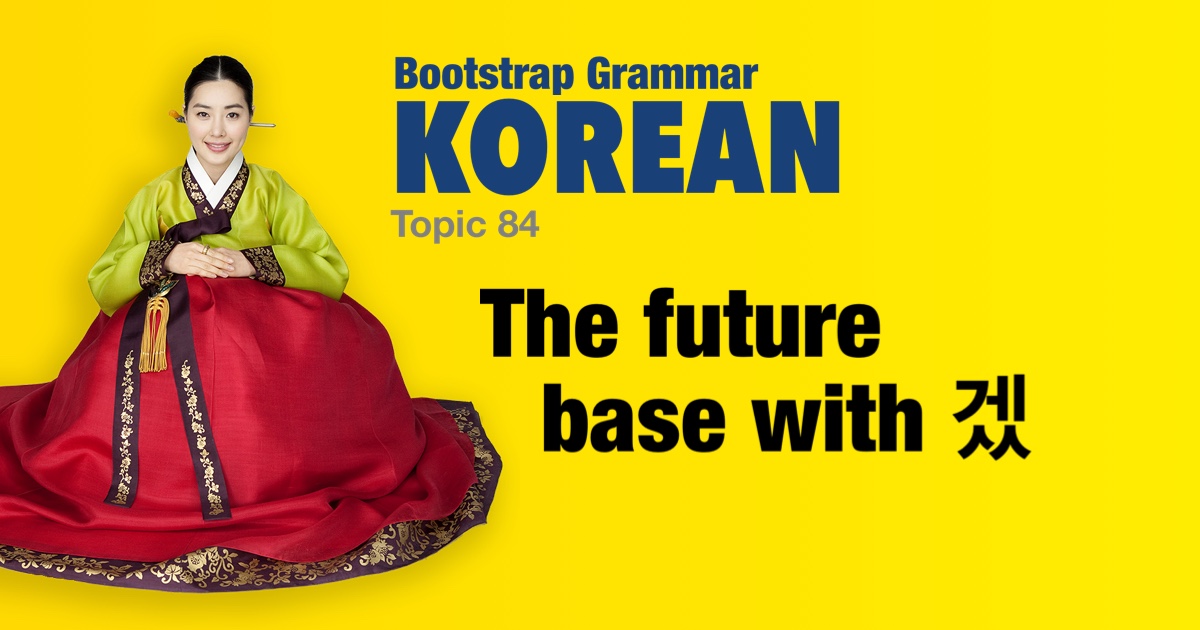Korean grammar - The future base with 겠 |
|||
|
|||
We have previously seen the past base conjugation that can be used in many verb ending patterns. -- For instance the past base 했 (from 하다 - 'to do') can be used with the end 지요 giving 했지요. So for example 공부했지요? (He studied, didn't he?) The future base form can be used in a similar manner. The future base is formed by added the future suffix 겠 to the Verb stem. -- So for example 하겠 is the future base form of 하다. And this can be used as follows: 공부하겠지요? - '(He) will study, won't he?' |
| Examples: | |
|
그는 공부하겠지요?
(He) will study, won't (he)? |
|
|
열심히 공부하면 시험에 합격하겠지요?
If (I) study hard, (I) will pass the exam, won't (I)? |
|
|
내일은 비가 오겠지만 오늘은 맑아요.
It will rain tomorrow, but today is sunny. |
|
|
저는 그녀에게 전화하겠지만 그녀는 대답하지 않을 거예요.
I'll call her but she won't answer. |
|
|
그녀는 교훈을 배우겠지만 기억하지 못할 거예요.
She will learn (her) lessons, but (she) will not remember. |
|
|
눈이 내리겠지만 모두 빨리 녹을 거예요.
It will snow, but it will all melt quickly. |
|
|
그는 지금 먹겠지만 곧 다시 배가 고파질 거예요.
He will eat now, but soon he will be hungry again. |
|
|
쇠고기는 주말에 비싸겠지만 지금은 싸요.
Beef will be expensive on the weekend, but it's cheap now. |
|
|
버스는 느리겠지만 걷는 것 보다는 훨씬 빨라요.
The bus will be slow, but much faster than walking.
|
|
 |
|



